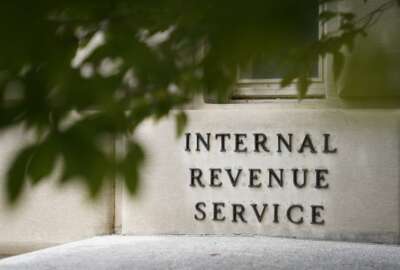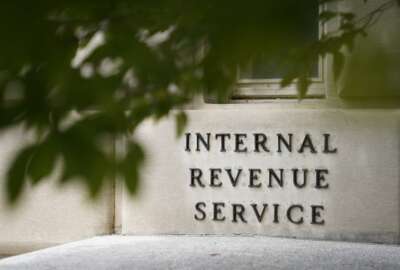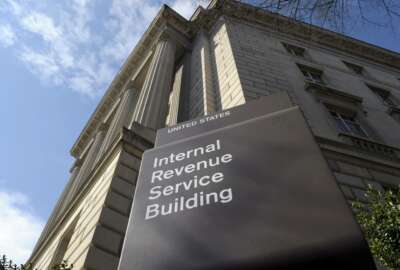IRS plans to invite taxpayers in 13 states to test its free e-file system next year
The IRS expects several hundred thousand taxpayers from 13 states will test a free, online tax-filing platform that’s run by the agency during next year’s...
The IRS is planning to invite taxpayers from 13 states to test a free, online tax-filing platform that’s run by the agency during next year’s filing season.
The IRS expects several hundred thousand taxpayers across the country will decide to participate in the pilot in 2024. Those participants will help stress-test the IRS “direct file” prototype and help the agency determine whether to scale up the program for the broader public.
IRS Commissioner Danny Werfel told reporters on Tuesday that the agency plans to incrementally roll out the platform to more taxpayers over time, just like how private-sector companies normally test out new products or software.
“We’re following a very tried-and-true approach for how to effectively roll out a new solution and make sure that we’re on top of issues as they arise, so that we can solve them in real-time,” Werfel said.
The IRS, in a press release, said it will invite a small group of eligible taxpayers in filing season 2024, and that as the filing season progresses, the agency will invite more eligible taxpayers to use the platform to file their federal tax returns.
But Werfel said not all residents in participating states will be able to participate in the direct-file pilot at this stage.
“We will not get to the point where, for example, everyone in the state of Alaska or Florida will be able to participate. A number of people in that state will be, as long as they need the pilot specifics,” Werfel said. “We aim to get a lot of people into this process, but not everyone in the state will be eligible to participate.”
The IRS said that all states were invited to join the pilot, “but not all states were in a position to join the pilot at this time.”
Werfel said the IRS will have a dedicated team of customer service representatives available next year to handle questions from those testing out the system.
“If you don’t understand something in the technology, or you have a question about the technology itself, as you’re being navigated through the solution — either on your smartphone or on the web, on your laptop — that will have dedicated people that will answer that question,” Werfel said. “If you have a specific tax issue that is specific to you, that would go to the main IRS help line.”
The Inflation Reduction Act, signed into law last year, gave the IRS billions of dollars to rebuild its workforce and modernize its legacy IT over the next decade.
It also gave the agency $15 million to issue a report on whether a direct e-file system would be cost-effective for the IRS to operate, and if taxpayers would use the system, rather than rely on third-party tax preparers.
If the IRS keeps scaling up its direct-file system, it will significantly expand what the IRS has been doing under its Free File program for more than 20 years.
The IRS under the Free File program has partnered with private companies to provide free electronic tax preparation and filing for taxpayers who have incomes below a certain threshold.
The IRS extended its relationship with the Free File Alliance through a memorandum of understanding that lasts through 2025.
Werfel said that the IRS is looking to give taxpayers more options to meet their tax obligations, and that they can keep using paid tax professionals, commercial tax software or the Free File program, if they prefer.
“I can’t stress enough that direct file, if pursued further after the pilot, would be just another choice taxpayers have to help them prepare their income tax returns,” Werfel said.
Tax preparation companies, however, remain critical of the IRS running its own electronic tax filing platform.
Tania Mercado, senior manager for communications at Intuit, the company that owns the tax preparation software TurboTax, said the direct file system “will exclude the vast majority of taxpayers who can file their taxes absolutely free of charge today — free for the taxpayers and free for the government.”
“The direct file scheme is a solution in search of a problem, and that half-baked solution now has the potential to become a financial nightmare for tens of millions of Americans while unnecessarily costing taxpayers billions of dollars for something free of charge today,” Mercado said.
Werfel said the IRS will closely monitor feedback from taxpayers who participate in the pilot.
“Do they report that they found the solution easy to navigate? Did they have a positive experience? For example, if they did have an issue, did our customer service reps effectively answer their question? We will evaluate all kinds of the logistics on the IRS, and in terms of our operation of this solution,” Werfel said.
Werfel said the IRS will also look at how many taxpayers are interested in signing up for the direct-file pilot.
“It will be interesting to see if we have a huge number of taxpayers that are trying to get into the pilot that weren’t able to get into the pilot, because it was limited. And that will tell us about the demand for the pilot,” Werfel said.
The National Taxpayer Advocate, the Government Accountability Office, members of Congress and several good-government groups have called on the IRS to create a free IRS preparation and filing tool to improve the taxpayer experience.
However, the Treasury Inspector General for Tax Administration found in a recent report that the IRS may have overestimated public demand for a government-run online platform to file tax returns.
The IRS is testing out its own e-file system, based on surveys that found 72% of taxpayers would be interested in it. But the TIGTA said the survey gave participants limited choices for responses and that only a fraction of respondents — about 28% — strongly favored an IRS-run platform.
The IRS direct file prototype will only cover individual federal tax returns during the pilot, and will not prepare state returns.
But Arizona, California, Massachusetts and New York have announced they will integrate their systems into the IRS Direct File pilot for filing state tax returns next year.
Taxpayers in nine other states without an income tax — Alaska, Florida, New Hampshire, Nevada, South Dakota, Tennessee, Texas, Washington and Wyoming — may also be invited to participate in the direct-file pilot.
Taxpayers in states without income tax only need to submit a federal income tax return.
Washington State, another state without an income tax, is partnering with the IRS direct file pilot, allowing taxpayers to apply for the state’s Working Families Tax Credit.
“After a Washington State citizen files under direct file, they’ll be seamlessly taken to a Washington state solution that will help them fill out that particular credit. And then there’ll be done in one sitting,” Werfel said.
The IRS expects specific income types, such as wages on a Form W-2, and tax credits like the Earned Income Tax Credit and the Child Tax Credit, will be covered by the direct file pilot.
The Direct File prototype will look and function like most commercially available tax preparation software. The IRS says the platform will work on smartphones, tablets and computers.
The service will be available in English and Spanish for the pilot.
House Ways and Means Committee Ranking Member Richard Neal (D-Mass.) said in a statement that the direct-file pilot “marks welcome progress at the Internal Revenue Service.”
“Direct filing will ease taxpayers’ burden and help deliver more comprehensive services, including bilingual customer support lines, that particularly benefit low- and moderate-income families across America,” Neal said.
Copyright © 2024 Federal News Network. All rights reserved. This website is not intended for users located within the European Economic Area.
Jory Heckman is a reporter at Federal News Network covering U.S. Postal Service, IRS, big data and technology issues.
Follow @jheckmanWFED






